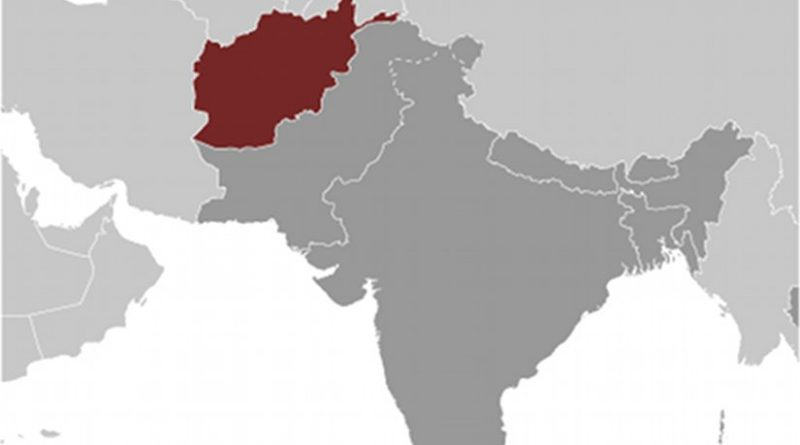
On the eve of the withdrawal of US troops, the increasingly powerful Taliban began occupying important cities and districts in various provinces of Afghanistan. Especially during July and August, the Taliban were rapidly occupying the cities of Afghanistan. They captured Kabul on the 15th of August after capturing almost all the cities by the second week of August.
More than a week has passed since the Taliban takeover of Kabul after 20 years of their previous regime. There have been significant developments of the Taliban and the situation of Afghanistan in the past few weeks. So far, the Taliban seems to be different in their approach to the Afghans and to the world community than their previous tenure in Afghanistan.
Internal situations
Chaos has been raging at Kabul airport for almost a week since the occupation of Kabul. With each passing day of Taliban control, the throngs outside Kabul’s Hamid Karzai International Airport continue to increase. In the meantime, the Taliban announced to form Inclusive Government, declared General Amnesty & Promises to ensure Women Rights. There has been reports that they have held several rounds of talks with the Afghan leaders to form an inclusive government. 33 Provinces are already captured by Taliban except Panjshir due to the immense dominance of the Northern Alliance led by Ahmed Massoud and former Vice President Amrullah Saleh.
Taliban claims they are in the process of negotiation with Panjshir leaders as they don’t want bloodshed. They have declared the ‘Islamic Emirate of Afghanistan,’ the same name it used when it brutally ruled the country in the 1990s. Some news hints a statement of a Senior Taliban Leader on ‘No Democracy, Only Sharia Laws’ on structure of Govt in Afghanistan. Taliban calls on the world to recognize them and are engaged in diplomatic channel to convince the international community.
On the other hand, refugee influx in Pakistan, Iran and Central Asian countries continues. Other than Panjshir, there were minor incidents of protests against the Taliban in Jalalabad & Asadabad. Taliban tries to address the increasingly acute economic problem. After more than a week of closures, banks in Afghanistan are starting to reopen. In the second press conference the Taliban requests the women workers to stay inside home until they have complete control over the security situation. They claim that the law-and-order situation in the city is satisfactory. The Taliban wants all foreign forces to complete evacuation by 31st August and will not allow any more Afghans to leave the country.
Regional development
Pakistan has long been accused of supporting Taliban and now media reports have said some Pakistani officials are involved in Taliban’s discussions to decide on its government model. Indian investment worth $3 billion is now at stake in Afghanistan. At the UNSC meeting India blamed Pakistan based terror groups for deteriorating security situations in Afghanistan. Iran resumes fuel export to Afghanistan at the request of the Taliban. Saudi Arabia along with the Middle East is seen adapting to new status quo in Afghanistan. Saudis also do not want to see Afghanistan turn into a Launchpad for Iranian ambitions. UAE could also use their financial clout as leverage as they have in the past. They have been badly criticized after welcoming exiled Ashraf Ghani in their land. Turkey will decide on Taliban recognition after government forms.
OIC pledged to help achieve peace in Afghanistan and said its future leaders must guard against allowing the country to be used as a backyard for international Islamist militancy. At the same time, NATO has suspended all support to Afghan government. IMF suspends Afghanistan’s access to funds. EU says no recognition of Taliban and no political talks. The G-7 countries requested President Joe Biden to extend the August 31 deadline for evacuation; however, the US president is unlikely to do that.
The US to recognize Taliban only if they respect basic rights while freezing Afghan government reserves in its banks. There was report that the head of the US Central Intelligence Agency (CIA) held a secret meeting in Kabul with Taliban founder Mullah Baradar, the Taliban neither confirmed nor denied it.
Implications for Bangladesh
Bangladesh has called upon United Nations to take concrete steps for establishing and sustaining peace in Afghanistan through inclusive political dialogue. The spillover effect of terrorism in Afghanistan may result in increase in religious extremism in Bangladesh. Bangladesh export of labor to the UAE may suffer as UAE has decided to take some Afghan refugees. Drug trafficking in this region may also rise remarkably as drug is one of the biggest sources of income of the Taliban and due to the gateway of Golden Crescent.
Another important consequence will be a huge number of refugee influxes into the neighboring countries, which might shift the attention from Rohingya refugee crisis.
Conclusion
Taliban’s different rhetoric statements on the process of forming a government are still blurred. Formation of a government may take time because of Afghanistan’s complex ethno-political scenario. In order to form a sustainable government, the Taliban might go for a negotiation with the Panjshir leader Ahmed Massoud and the former vice president Amrullah Saleh. The countries which recognized the previous Taliban regime are still watchful.
Taliban may have to form an inclusive government having the prominent Afghan leaders in order to earn recognition from the world community. It remains to be seen how true the nature of Taliban’s promises on women’s rights will be. The dirty and annihilating game of power politics by the external powers in a deeply polarized environment might be intensified.
Therefore, Bangladesh must undertake a serious strategic review of existing and upcoming situations in Afghanistan.
